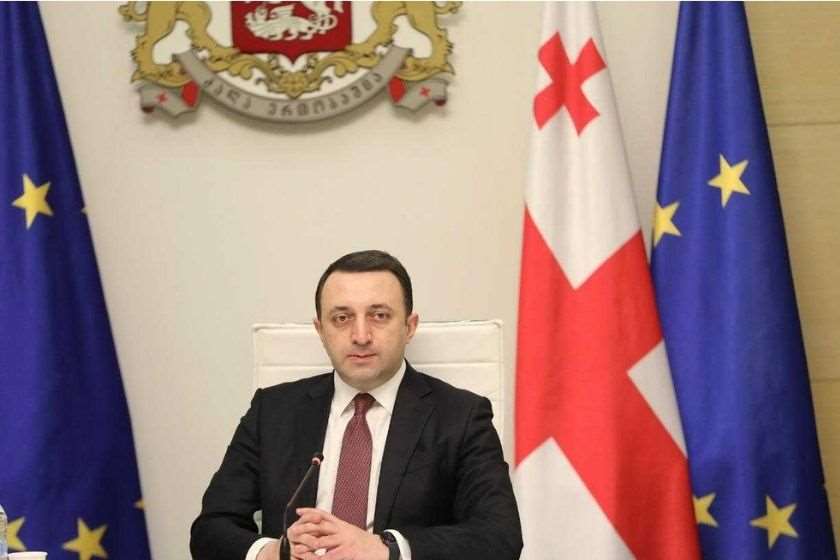Photo: Wikimedia Commons
Despite having applied for European membership, in the last months, Georgian politics have shown alarming signs of democratic backsliding, pro-Russia politics, and political repression. This article examines the disturbing current affairs regarding Georgian democracy, including their background and their possible outcomes.
Political repression
In the last months, despite the noteworthy release of an opposition journalist after a presidential pardon, Georgia has faced increasing levels of political repression. This has been evident in the arrest of protesters demonstrating against arbitrary police conduct, including those who were only holding blank placards. Furthermore, freedoms of assembly and expression are facing growing threats. On the 3rd of June, the US Embassy in Georgia responded to these events stating that a “lack of tolerance for dissent is inconsistent with the values of the Euro-Atlantic family of nations, which the majority of the people of Georgia wish to join”. Apart from the arrest and detention of peaceful protesters, Georgians have also been facing incidents of attacks and threats towards those who are critical of the government. Many believe these are executed on behalf of the government. These events, in combination with single-party dominance and parliamentary boycotts spark fears of democratic backsliding. Another sign of this phenomenon is the infamous introduction of the ‘foreign agents bill’ by the Georgian Dream-led government. This controversial law, which was later withdrawn, intended to take further control over opposition, society and free media and civil society. This restriction of civic space has been linked to Georgian Dream’s efforts to ensure an electoral victory in the upcoming elections of 2024.
Georgian Dream leaving PES
The ruling Georgian Dream party had been under observer member status of the Party of European Socialists (PES) since 2015. However, after Georgia’s Prime Minister Irakli Garibashvili participated in the Conservative Political Action Conference (CPAC) in Budapest, PES responded by publicly condemning the decision. Finally, on June 29, 2023, Georgian Dream was officially stripped of its observer member status. Georgian Dream’s conservative actions should not come as a surprise following its growing friendly and ideological ties with Viktor Orbán and other illiberal actors in Europe. Thus, their removal from PES creates the peculiar situation that the biggest party in a country with a very large pro-EU sentiment has no European political affiliation at the moment.
Russian influence
Despite a turbulent history between the two countries, these Georgian political trends are disturbingly reminiscent of Russian undemocratic politics. This is part of the reasons why Georgia’s government under the Georgian Dream Party has been accused of pro-Russian inclinations. Other important reasons include corruption, especially as the Party is founded and largely funded by oligarch Bidzana Ivanishvili, who has strong ties to Moscow and the Russian business industry. Another remarkable event which occurred on the 10th of May is Putin lifting a flight ban and abolishing visas for Georgians, after which Georgia Airways resumed its flights to Russia, leading to Ukrainian sanctions.
The path to EU membership
As a result of the Russian invasion of Georgia in 2008 and the current Russian invasion in Ukraine, the great majority of Georgian people are in favour of pro-European and pro-Western politics. Consequently, Georgia officially applied for European membership in March 2022. Georgia’s efforts to join the EU, along with those of Moldova and Ukraine, form the pro-Western “Associated Trio”. However, the recent pro-Russian, repressive, and conservative acts of the Georgian government make the path to EU-membership more difficult and have delinked Georgia from Moldova and Ukraine, who received their EU candidacy in June 2022. Some even question whether the government is truly keen on establishing closer EU ties. The EU has set out twelve recommendations for Georgia in order to achieve candidate status. However, as of the end of June, the government had only achieved three of these. The government needs to significantly improve in terms of de-oligarchisation, anti-corruption, public finances, and judicial reforms. The European Commission will reassess the country’s progress in October 2023.
Georgia’s Future
Further significant consolidation of authoritarian power in Georgia may severely hinder its EU integration. It might also cause greater Russian influence, which will lead to civil crises, as recent protests have demonstrated the readiness of the largely pro-Western and pro-European civil society to persist in the struggle for a fair democracy. Apart from civil society, the EU and the US may also play a leading role in strengthening Georgian democracy and preventing further Russian power in the country. Georgia’s future heavily relies on two factors: whether the Georgian Dream Party will stay in leadership after the 2024 elections and whether the EU will grant Georgia candidate status before or after these elections. Should this occur before the elections, it might legitimise the rule of the incumbent government. However, if Brussels rejects the candidate status before 2024, this might strengthen Eurosceptic sentiments in Georgia which then might lead to further Russian influence and worse democratic backsliding. With new elections coming closer, the Georgian situation remains highly relevant yet uncertain.
Written by Luna Sent



